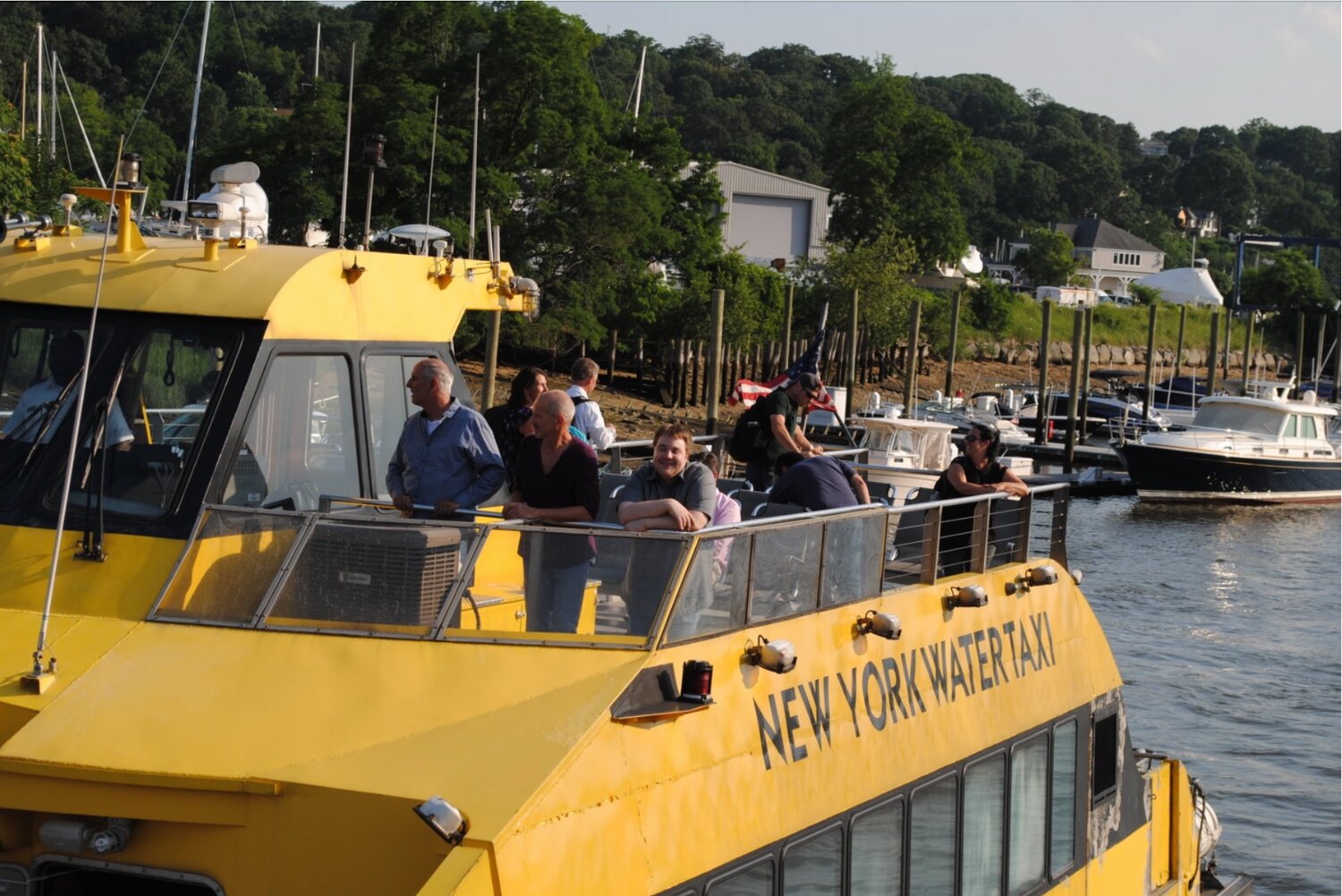Is there a future for the city’s ferry service?
The long-delayed plan to launch a commuter ferry service from Glen Cove’s multimillion-dollar terminal has hit another roadblock, with city officials fearing a potential federal grant clawback that could severely impact local taxpayers.
Built in 2015 using $16.6 million in federal grants, the terminal has sat idle on the city’s waterfront for nearly a decade. According to the grant agreement, the city must operate a commuter ferry service to Manhattan for at least two years or face the possibility of repaying the entire grant. Despite various efforts, the service has yet to launch, raising the specter of a financial burden that could fall on Glen Cove residents.
In a City Council meeting on June 25, Mayor Pamela Panzenbeck removed a resolution to negotiate with New York Water Taxi for a two-month pilot program this fall. The decision came after RXR Realty, the developer of the adjacent $1 billion Garvies Point project, did not commit to help subsidize the ferry service.
Joseph Graziose Sr., RXR’s executive vice president of residential development, explained that the city could never guarantee that the ferry would be operational without significant subsidies. In 2016, RXR agreed to subsidize its operation with up to $1 million, and in 2019 the developer provided $120,000 for consultant studies.
The city recently requested $250,000 from their subsidy agreement with RXR to run a pilot ferry service in September and October, using a 149-passenger vessel that would need to be filled to capacity each day for the service to break even, which RXR deemed unlikely. Graziose believes the plan is unsustainable, and anticipates monthly losses of $125,000. The developer is willing to provide funding once losses are incurred, but does not support the upfront funding model the city has proposed.
“RXR is required to subsidize ferry operations up to one million dollars, but has held firm that the City needs to incur an operating loss before a subsidy is provided,” Panzenbeck’s email reads. “The City disagrees with that interpretation of the development agreement and has required that RXR commit a subsidy amount upfront to fund the pilot service. As Mayor, I have a fiduciary responsibility to the City’s taxpayers and will not burden our residents with a ferry service without RXR’s subsidy already in place. For this reason, the ferry pilot for 2024 has been tabled by City Council.”
A ferry operated briefly in 2017, when Penn Station was undergoing repairs, but the boats ran at less than one-third capacity. In early 2020, the city signed a letter of intent with Hornblower Corp., a company that provided ferry service in New York City, and developed ferry schedules and prices for service that was expected to begin that May, but it was put on indefinite hold when the pandemic began.
Glen Cove residents like Patty Tracy have expressed their frustration with the failure to get the ferry service up and running, noting that many voiced concerns about the project from its inception.
“The city ignored the information given to them and believed the developers’ promises,” Tracy said. “Someone should ensure this clawback does not increase taxes, because taxpayers did not want this.”
The stalled ferry effort has also raised questions about Glen Cove’s future relationship with federal grant agencies. According to former Federal Transportation Administration official Larry Penner, failing to fulfill the grant terms could jeopardize the city’s credibility and future funding opportunities. “Federal investments have a use-for-life clause, and not meeting these terms is unheard of,” Penner said. “Glen Cove risks losing credibility for future grants if they don’t resolve this issue. It’s unheard of, in my professional experience, that 21 years later, the federal agency didn’t get what they paid for. There’s no way the city of Glen Cove is going to be left off the hook.”







